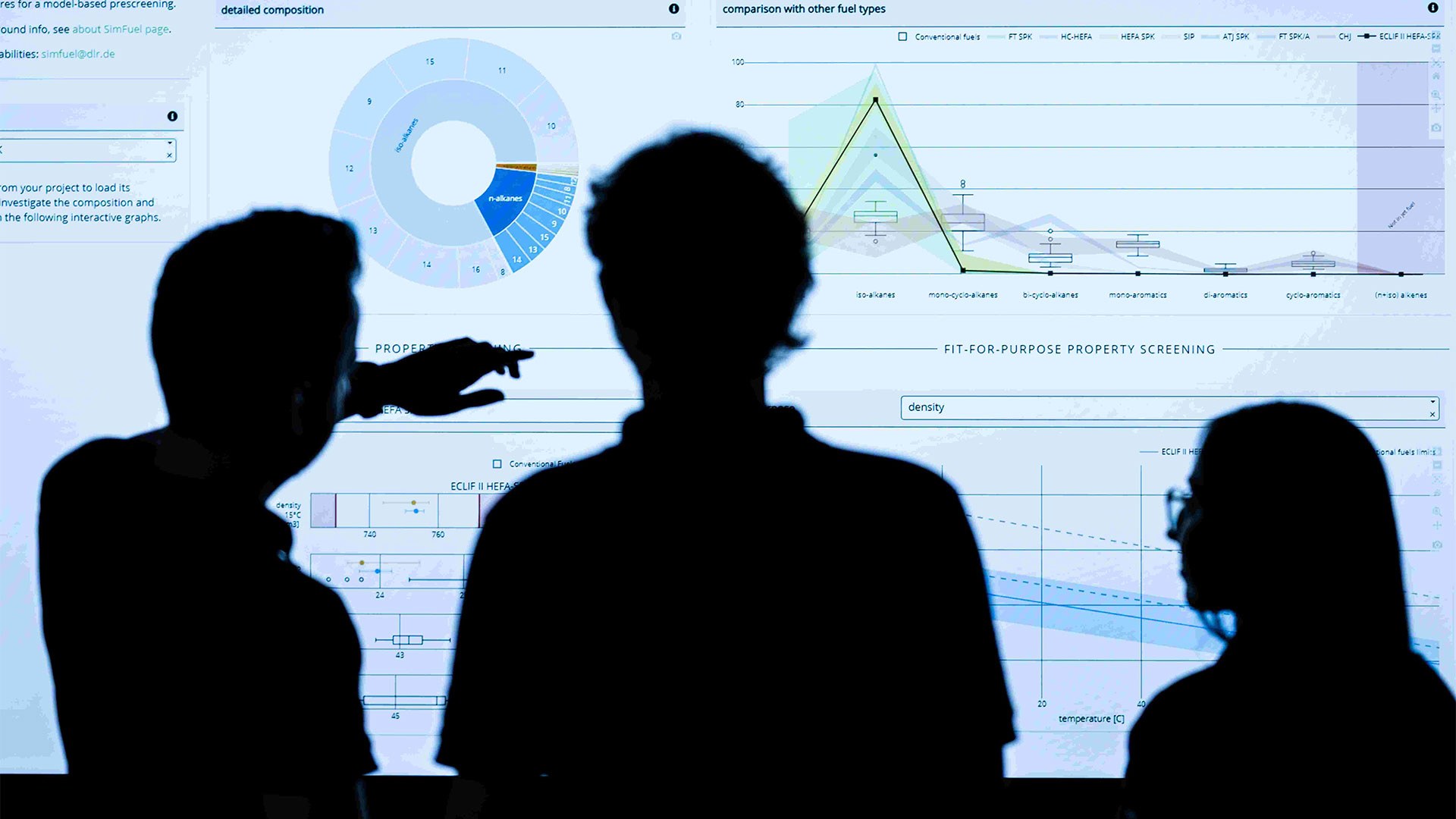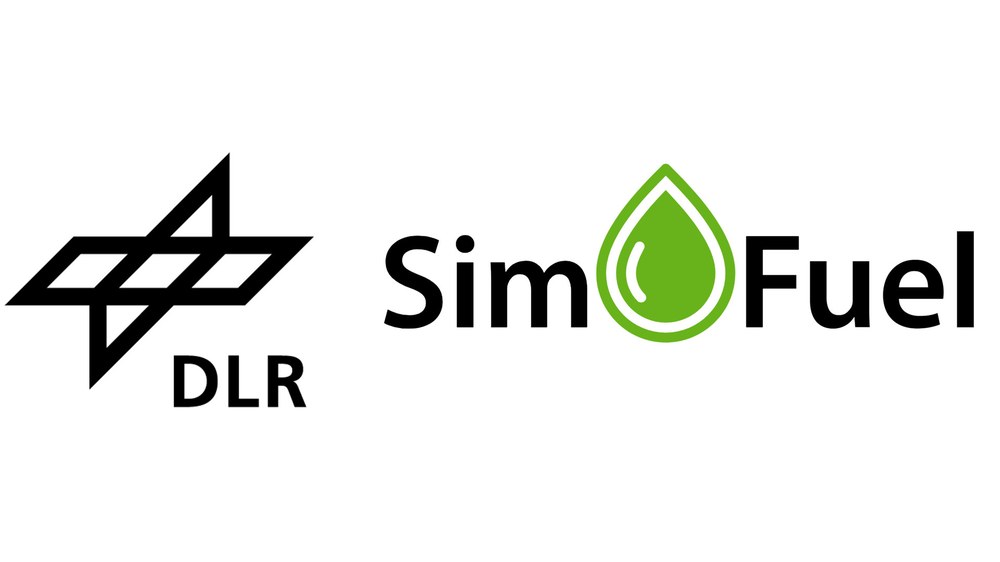The DLR Simfuel® platform

The DLR Simfuel® platform is an interactive, interdisciplinary and collaborative digital platform for the evaluation and optimisation of fuels. The concept was developed in parallel with DLR prescreening as part of the Jetscreen project and has been gathering pace ever since. SimFuel serves the institute as a resource for the analysis and optimisation of fuels.
The DLR Simfuel® platform includes several databases for fuels and molecules. These databases are essential to use existing data for fuel evaluation and to develop or train models, including those based on machine learning (ML) and statistical analyses. These databases now contain data on more than 15,000 conventional jet fuels and more than 450 novel fuels, as well as numerous analyses of the most important molecular groups and models for material properties and fuel behaviour in technically relevant processes.
The platform also includes several advanced models for predicting previously unknown fuel properties and performance characteristics and provides insights based on both physical and machine learning-based modelling approaches. The distributed modelling approach offers the possibility to connect external models and combine different approaches. This enables multidisciplinary evaluations and optimisations.

In addition, Simfuel emphasises the crucial role of human expertise through its "Humans in the Loop" component to ensure that tacit knowledge is captured and that the platform's outputs are seamlessly integrated into real-world decision-making processes. This human-centred approach enriches the technological sophistication of the platform and makes it a dynamic tool in the field of fuel technology. This is supported by the interactive, web-based Simfuel dashboards.
This unique combination of separate models and the combination of different data sets results in many possible applications in research and development:
- Fuel prescreening: Model- and data-based prescreening prior to the official ASTM approval process minimises risk and enables fast, iterative feedback for manufacturing process developers based on small sample volumes (ml)
- Fuel design: The models, data and tools used for prescreening can also be used for fuel design through iterative and repetitive application to not only ensure approvability as in prescreening, but also to minimise the climate impact of fuels while maximising value for the manufacturer. State-of-the-art optimisation methods are used for this purpose.
- Co-optimisation: The distributed models result in potential for co-optimisation of the entire system, from fuel production and fuel through to the aircraft and its impact on the climate. This enables, for example, an increase in the use of raw materials, the amount of fuel available and competitiveness and should avoid local optima.
- Consistency check: Use of models and data to check the consistency of various data and model statements. For example, the consistency check between GCxGC measurement and subsequent prediction of the density and derivation of the hydrogen content with density and hydrogen content measurements makes a valuable contribution to quality assurance in DLR prescreening. The data and models of the Simfuel platform can also be used to analyse inconsistencies caused by contradictory measurements of fuel samples during flight measurement campaigns.
- single source of data & digital twin: The platform offers a "single source of truth" data source for research projects to provide consistent and up-to-date fuel property data for all project partners along the value chain via interactive project dashboards. Among other things, this enables project partners to evaluate fuels from the project including their "history" in combination with models and data from the DLR Simfuel® platform.
